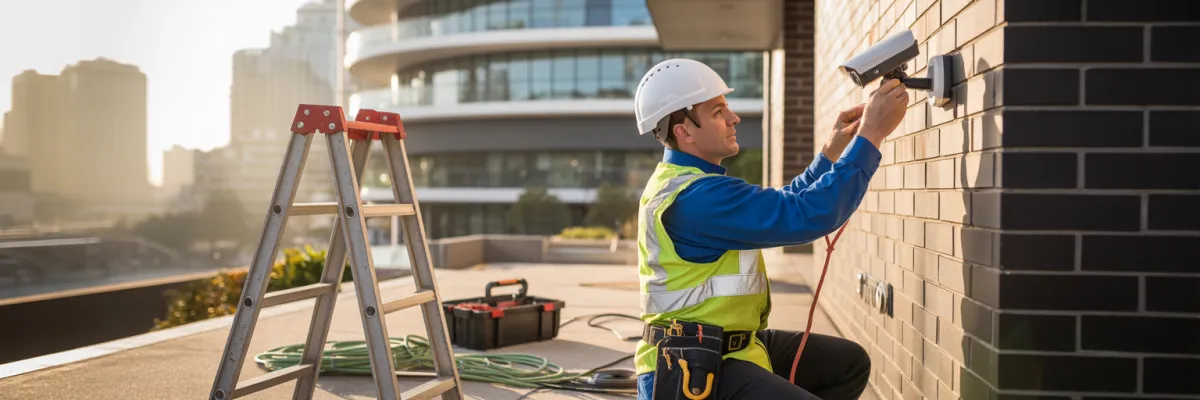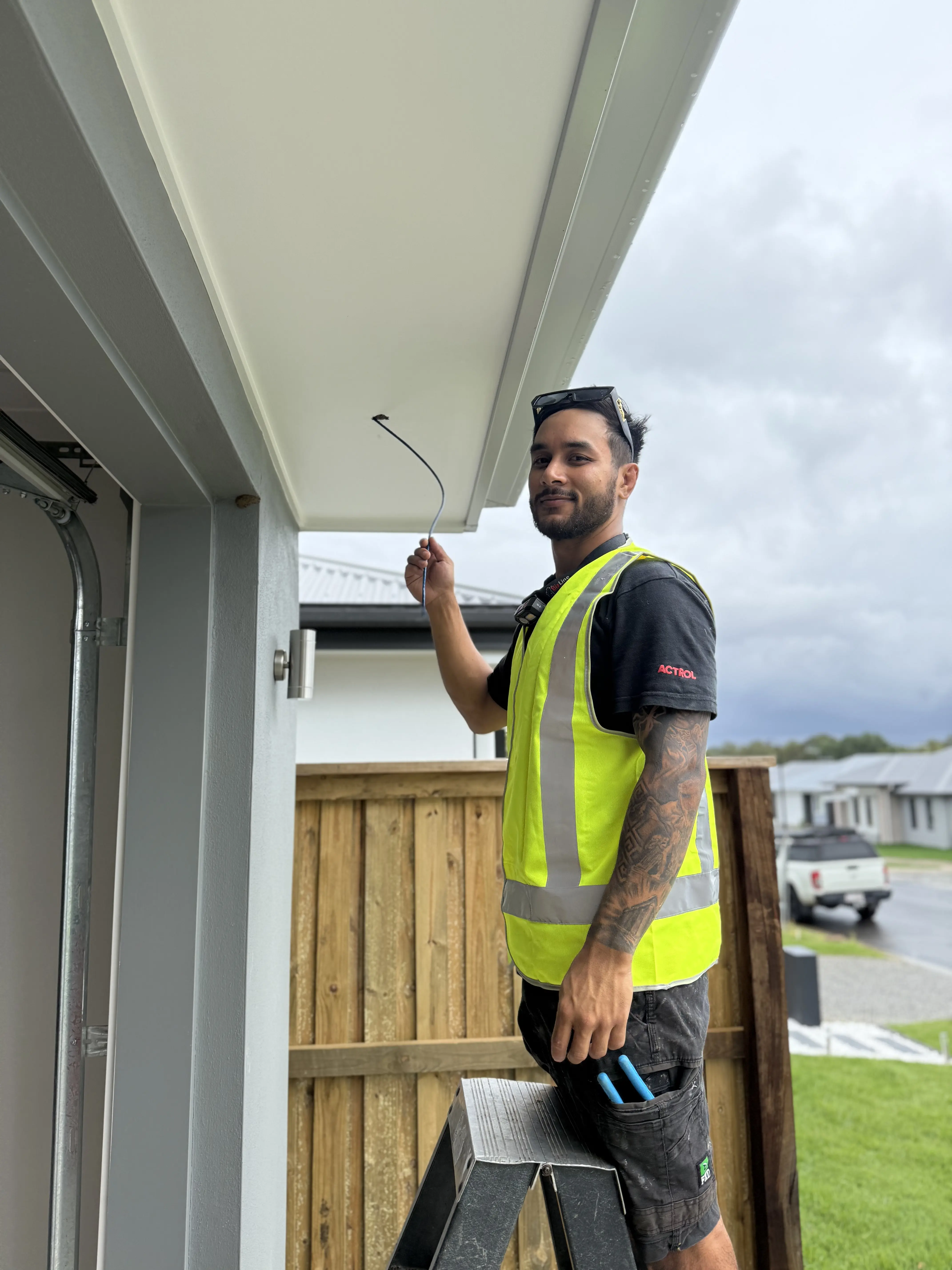
Surveillance Equipment Installation Guide for Brisbane Businesses: Everything You Need to Know in 2025
Three months ago, Sarah Chen walked into her Fortitude Valley cafe at 6 AM to find the back door jimmied open and $4,000 worth of equipment gone. No witnesses. No footage. No leads. Just a sick feeling in her stomach and the realization that she'd been putting off surveillance equipment installation for too long.
Sound familiar? You're running a business, not a security company. Between managing staff, dealing with suppliers, and actually serving customers, researching camera systems falls to the bottom of your to-do list. Until something happens.
Here's what most Brisbane business owners don't realize: surveillance equipment installation isn't just about catching thieves anymore. It's being able to check your Eagle Farm warehouse from your living room at 10 PM. It's having evidence when disputes arise. It's reducing your insurance premiums and protecting yourself from liability claims.
This guide draws from over 500 commercial installations across Brisbane. You'll learn what different surveillance equipment installation options cost, understand equipment types in plain English, navigate Queensland's legal requirements, and spot trustworthy installers versus the ones who'll disappear after they cash your check.
Ready to stop worrying about your business security and actually do something about it?

Types of Surveillance Equipment for Brisbane Businesses
IP Cameras vs Analog Systems: What Brisbane Businesses Need to Know
Analog Systems - are the cheapest option upfront – maybe $150-300 per camera. They connect using coaxial cables and record to a DVR box in your back office. The problem? Resolution maxes out around 1080p, and you can't check footage remotely. Most systems require you to physically be at the DVR.
IP Cameras - are what most Brisbane businesses install now. They connect to your network, record to cloud storage or a network video recorder, and you can access them from anywhere with internet. We're talking 4K resolution that captures facial features from across a parking lot. Plus smart features like motion detection zones, automatic phone alerts, and searchable footage.
Cost-wise, expect $300-800 per IP camera. Yeah, it's more expensive upfront, but the remote monitoring capability and usable footage quality pays for itself fast.
Real example: We installed an IP system for a car dealership on Gympie Road. Three months later, someone sideswiped a customer's car in their lot. The 4K IP cameras captured the other vehicle's license plate clear as day. Insurance handled everything without the dealership being liable.
Indoor vs Outdoor Camera Requirements (Queensland Weather Considerations)
Indoor cameras - are straightforward. Dome cameras (mounted on ceilings) or bullet cameras (cylindrical ones that stick out). Dome cameras look less intimidating for customer-facing areas. Bullet cameras are more obvious for deterrence in warehouses.
Outdoor cameras - in Brisbane need IP66 or IP67 ratings minimum. Brisbane's summer storms are brutal – wind-driven rain finds every gap in camera housing. Plus humidity causes condensation inside poorly sealed cameras, fogging lenses and killing electronics.
Look for cameras with:
Metal housing (plastic degrades faster in our UV levels)
Built-in heaters to prevent condensation
Vandal-resistant covers (IK10 rating)
Surge protection (our lightning storms will fry unprotected equipment)
We spec outdoor cameras at $500-1,200 each for Brisbane installations. A Rocklea manufacturer learned this the hard way – they installed cheap outdoor cameras ($200 each) and replaced four within two years due to water damage and UV degradation.
Queensland Legal Requirements and Compliance
Queensland has specific laws around workplace surveillance, but compliance isn't as complicated as lawyers make it sound. Follow a few basic rules, and you're fine.
Privacy Laws for Commercial Surveillance
The Workplace Surveillance Act 2005 (Queensland) boils down to this: you can absolutely monitor your workplace with cameras, but you have to tell people you're doing it.
The Notice Requirement
Give employees written notice at least 14 days before starting surveillance. Written notice that clearly states:
Where cameras are located
What they're monitoring
How footage will be used
How long you'll keep recordings
Who has access to footage
A Newstead office installed cameras without telling their team first. One employee complained to Fair Work, and the business had to remove all cameras, issue back-pay, then reinstall everything after proper notice. Cost them about $8,000 plus three weeks of disruption.
Customer Areas vs Private Spaces
You can record in public areas – sales floors, parking lots, entrances, common areas. Just put up signage. But bathrooms, change rooms, and private offices? That's a hard no.
In Queensland, you generally need consent from everyone being recorded to capture audio. Most commercial systems record video only. Skip the audio unless you have a specific need – it complicates everything.
Council Permits and Signage Requirements
Brisbane City Council doesn't require permits for cameras on private property monitoring your own premises. Where it gets tricky: if your camera captures public footpaths, roads, or neighboring properties, you might need council approval.
Heritage Buildings – If your building is heritage-listed (common in New Farm or Woolloongabba), you need council approval before installing external cameras. Usually takes 4-6 weeks.
Signage Requirements – Display clear signage at all entry points stating "24-hour video surveillance" with your business contact information. Those generic signs from Bunnings work fine. A South Brisbane retail store got fined $2,000 because they had cameras operating but no visible signage for six months.

Professional Installation Process: What to Expect
Pre-Installation Site Assessment and Planning
Good installers don't just show up and start drilling holes. A proper site assessment takes 1-2 hours. They're looking at vulnerable areas, existing infrastructure, potential obstacles, and Queensland weather considerations.
After the site visit, receive a detailed proposal within 3-5 business days including:
Site map showing proposed camera locations
Equipment specifications
Storage calculations
Installation timeline
Itemized costs
Warranty information
If someone quotes you on the spot without calculations? Walk away. They're guessing.
Installation Timeline and Business Disruption
Typical Installation Timelines:
Small systems (4-8 cameras): 1-2 days
Medium systems (8-15 cameras): 2-3 days
Large systems (15+ cameras): 3-5 days
Day 1 focuses on infrastructure – running cables, installing network equipment, mounting brackets. This is the messiest day. Day 2+ is camera installation and configuration – less disruptive because messy work is done.
Smart businesses schedule installations during slower periods. A Fortitude Valley nightclub scheduled their installation across three Monday-Tuesday periods (their slowest days). Took longer overall, but they never had to close or disrupt operations significantly.
Testing, Training, and System Handover
Professional installers test everything before calling the job complete:
Camera image quality at different times of day
Motion detection sensitivity
Remote access from multiple devices
Recording functionality and storage capacity
Alert systems
A West End restaurant had cameras that looked perfect during daytime installation but were completely washed out by their outdoor sign lighting at night. We caught it during testing and repositioned two cameras.
Training Your Team should include:
How to view live footage
How to search and export recorded video
How to adjust motion detection zones
Mobile app and remote access
Emergency contact information
We schedule training as a separate visit a few days after installation. Gives you time to think about questions.
Choosing the Right Installation Company in Brisbane
Essential Qualifications and Certifications
In Queensland, anyone installing low-voltage cabling needs a Queensland Electrical Contractor License. Ask to see their license number. Look it up on the Queensland Government's Electrical Safety Office website.
Beyond basic licensing, look for:
ASIAL membership (Australian Security Industry Association Limited)
Manufacturer certifications (Hikvision, Dahua, Axis)
Structured cabling certification
A Woolloongabba gym hired an uninsured installer who fell off a ladder and broke his arm. The installer sued the business. Cost the gym owner $35,000.
Red Flags to Avoid
The quote is 40%+ cheaper than everyone else – You're getting inferior equipment, corner-cutting installation, or someone who'll disappear after cashing your check.
Pressure tactics – "This price is only good if you sign today." Quality installers don't operate like car salesmen.
No physical office location – If they only have a mobile number, you'll never find them when issues arise.
Can't provide references – Every established installer has satisfied clients willing to vouch for them.
Won't provide system documentation – You own the system. You should have complete documentation including passwords and network settings.

Conclusion
Surveillance equipment installation isn't exciting, but it's one of those business investments that protects everything else you've built.
The businesses doing it right aren't necessarily spending the most money. They're doing research, asking good questions, choosing quality installers, and implementing systems that actually match their needs.
Start with understanding what you're trying to protect. Get multiple quotes from licensed installers. Ask the hard questions. Check references. Choose based on overall value and long-term partnership potential, not just the lowest price.
Your business represents years of hard work. Protect it properly.
Ready to move forward with surveillance equipment installation for your Brisbane business? Take that next step – whether it's calling references, scheduling site assessments, or finally pulling the trigger on a system you've been putting off.
The peace of mind is worth it.


